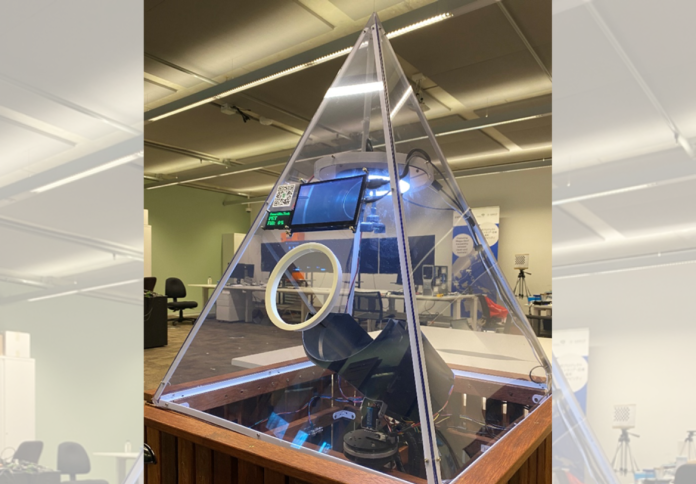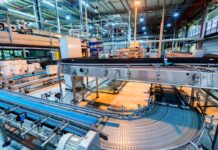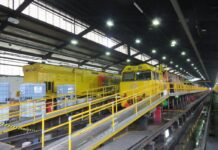
Australia’s national science organization, CSIRO, is showcasing the most recent advancements in recycling during National Science Week to inspire the next generation of leaders who will lead our circular economy-centered future.
CSIRO Chief Executive Dr. Larry Marshall and researchers from CSIRO and The University of Technology Sydney have invited students from year 6 at Marrickville Public School to test a new prototype “Smart Bin” and interact with construction materials made of recycled glass and polystyrene.
Smart Bin Technology automatically sorts plastic, metal, and glass as well as specific types of plastic using Internet of Things (IoT), sensors, robotics, artificial intelligence (AI), and infrared spectroscopy technologies.
Given that only 10% of NSW’s 800,000 tonnes of plastic waste are recycled, the bin is a proof-of-concept device created to increase recycling rates and decrease contamination in waste streams.
It also promotes repurposing waste into a resource. Much of the recycled materials used by Victorian small business Casafico to make commercial construction materials are sourced through the online waste exchange market ASPIRE, which was established by CSIRO in 2013.
Innovation and teamwork, according to CSIRO Chief Executive Dr. Larry Marshall, are essential for developing Australia’s circular economy and are at the core of the organization’s collaborative Ending Plastic Waste Mission, which aims to reduce the amount of plastic waste entering the environment by 80% by 2030.
“Solutions from science that will grow our circular economy take collaboration at every stage of the innovation process – from understanding plastics at a molecular level to reinvent the way plastic is used, made, and recycled, through to commercialising solutions that use new technologies like this Smart Bin, which is now in discussions to go to market, and spinning out new companies like ASPIRE to grow new circular economy jobs,” Dr Marshall said.
“Science can transform our economy into a circular one that renews and reuses what we previously discarded, creates higher paid jobs, advances new Australian technology, and protects our environment, while inspiring the next generation with what’s possible – during National Science Week and throughout the year.”
CSIRO Principal Research Scientist Wei Ni added: “Smart Bin Technology could be used at venues like shopping centres, schools, cinemas, coffee shops and airports. It will improve recycling rates because it is so easy to use and could ensure that materials can be recovered for reuse.”
Casafico Head of Communications, Samantha Mucci talked about the benefits of operating in the circular economy.
“Sourcing waste materials through Aspire helps us to become carbon positive, to save scarce natural resources and divert waste away from landfill,” she said.
“We can’t underestimate how small changes can make a huge difference. It’s great to see the next generation are learning that.”




















